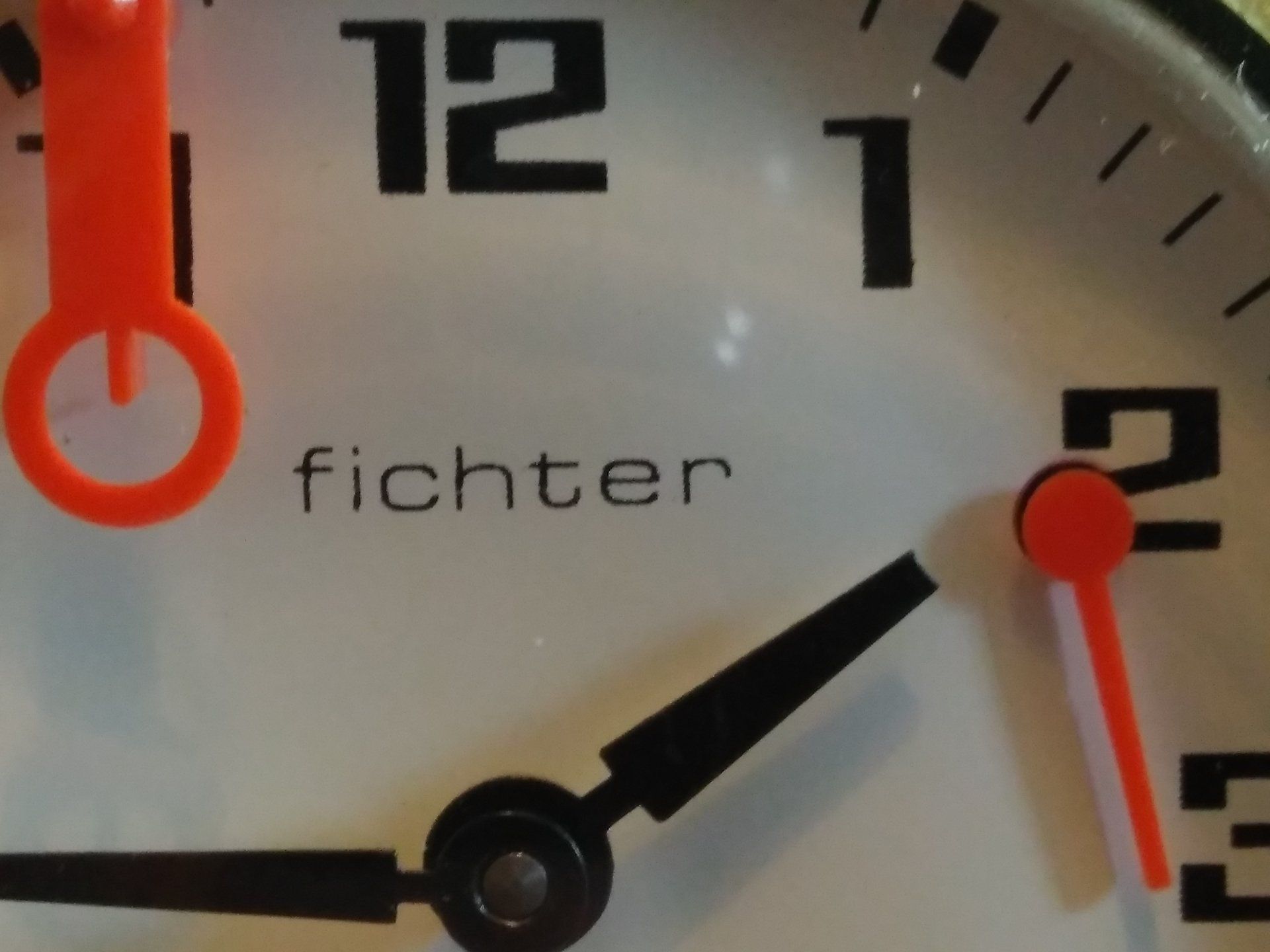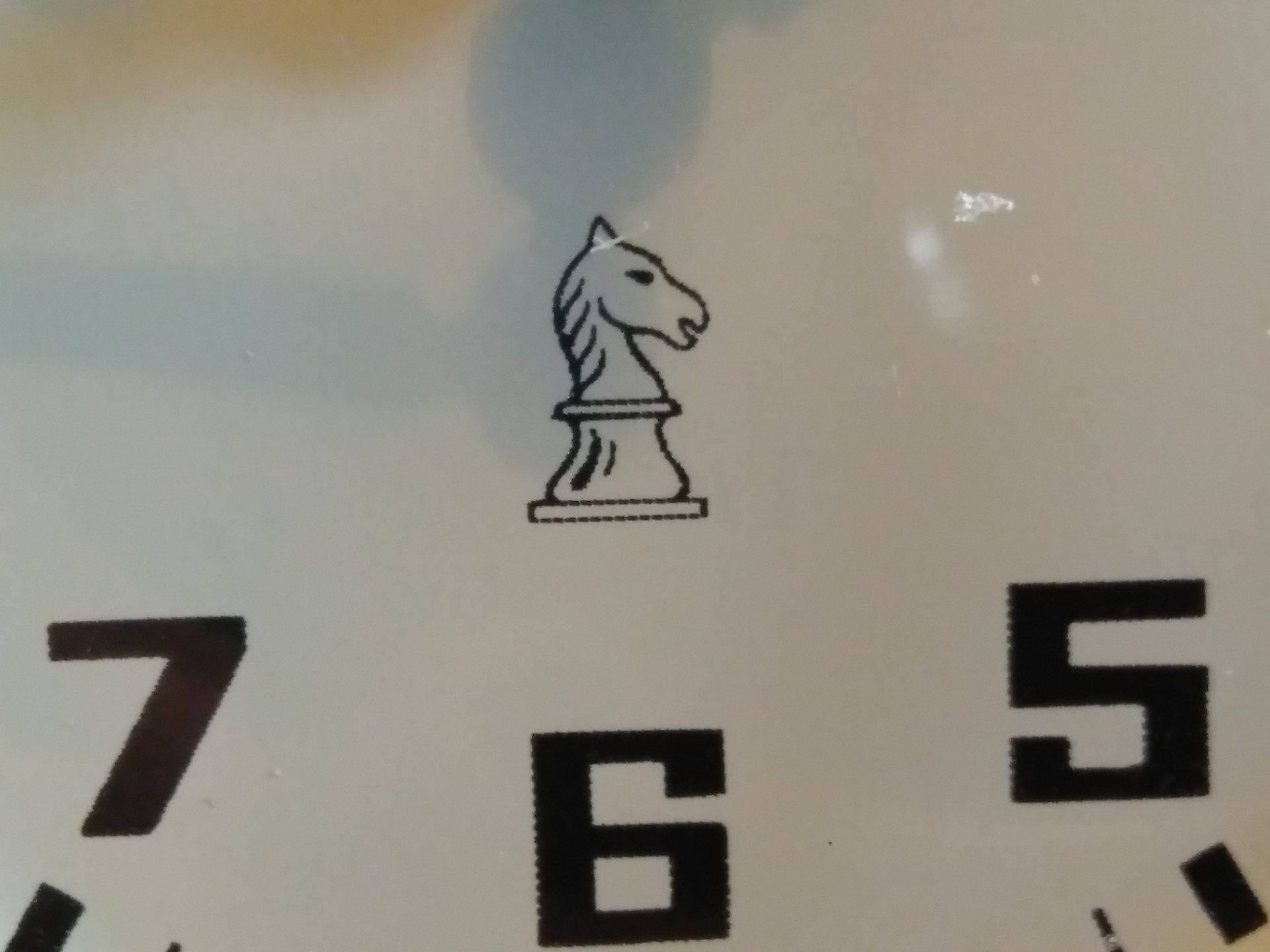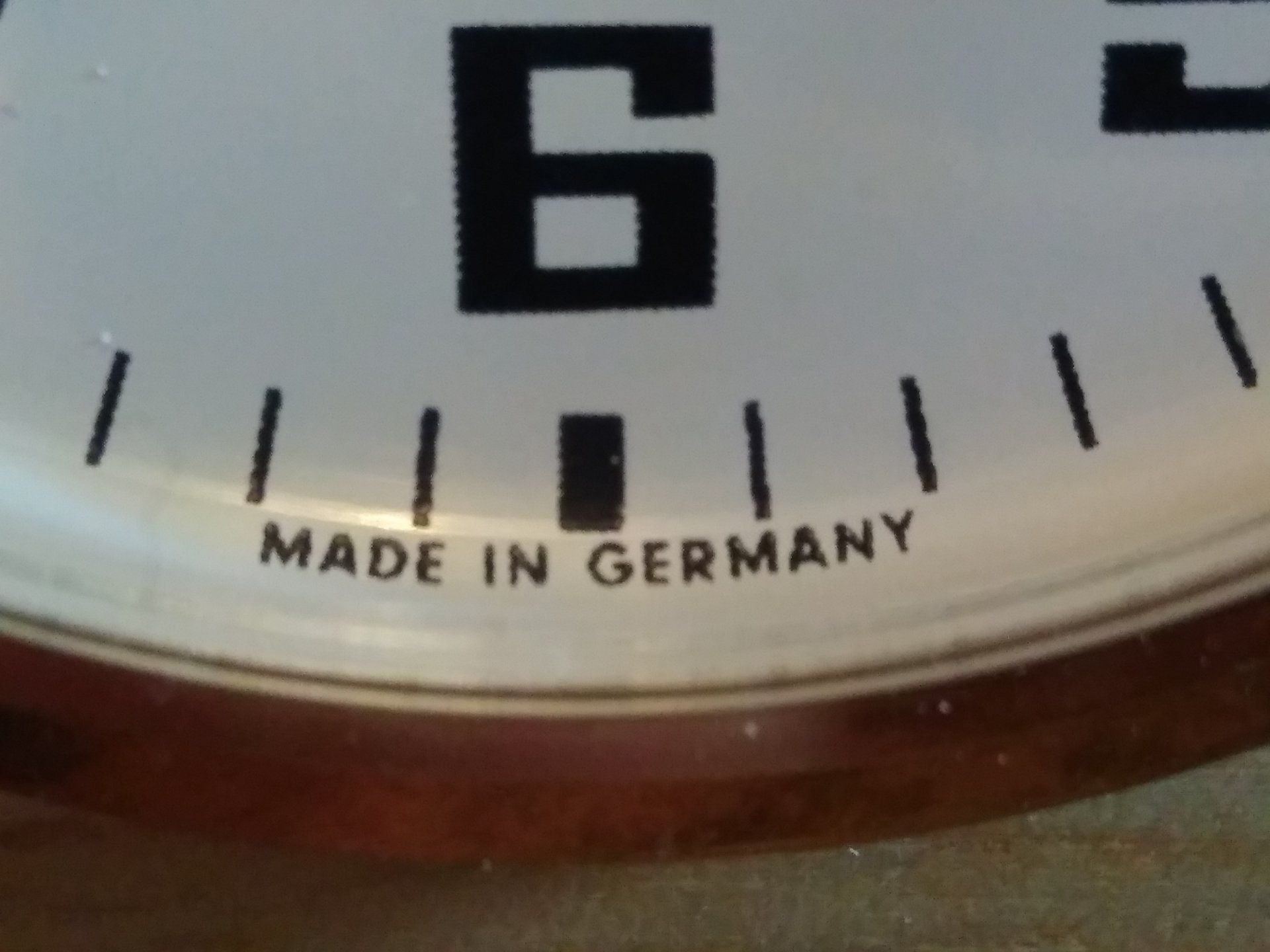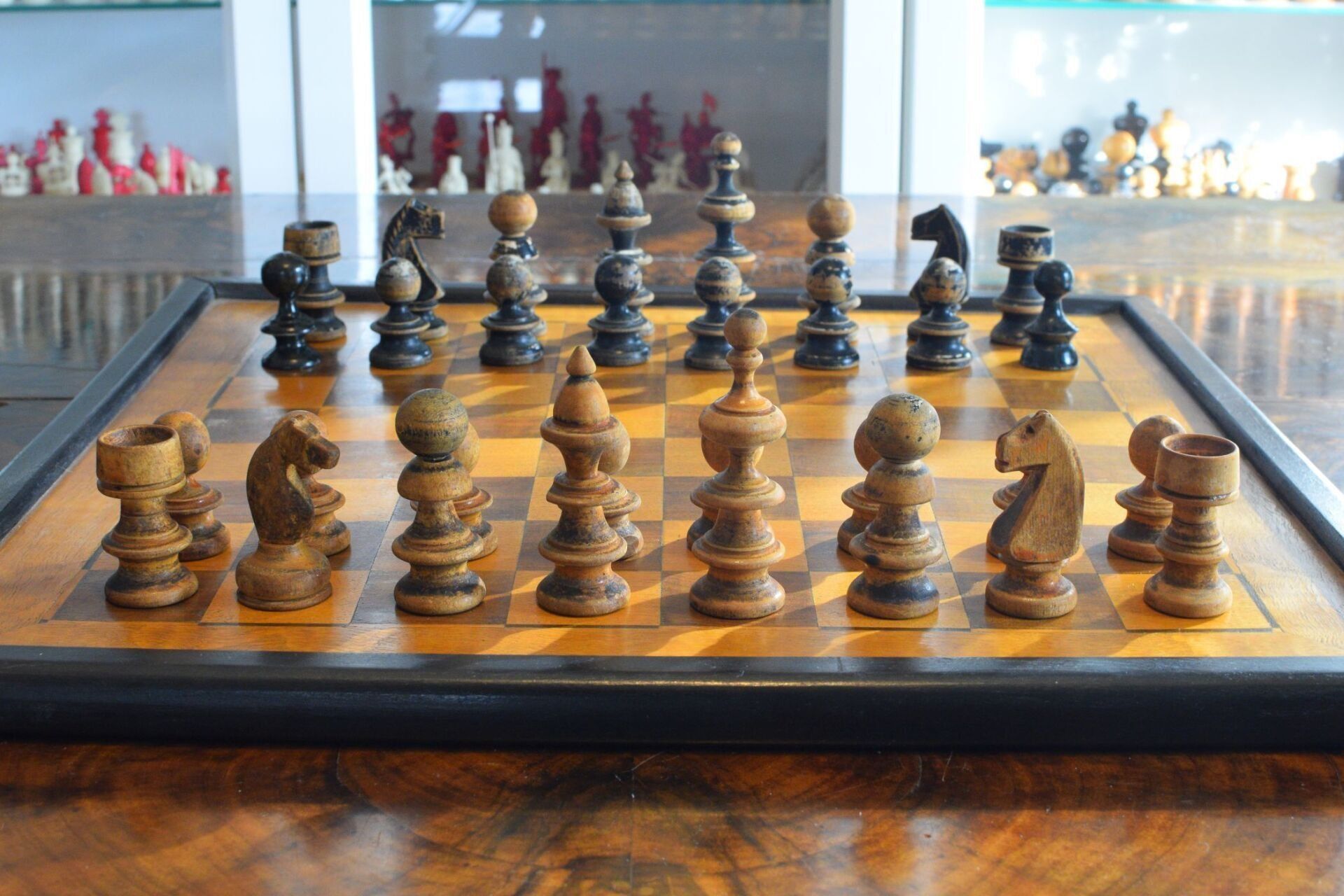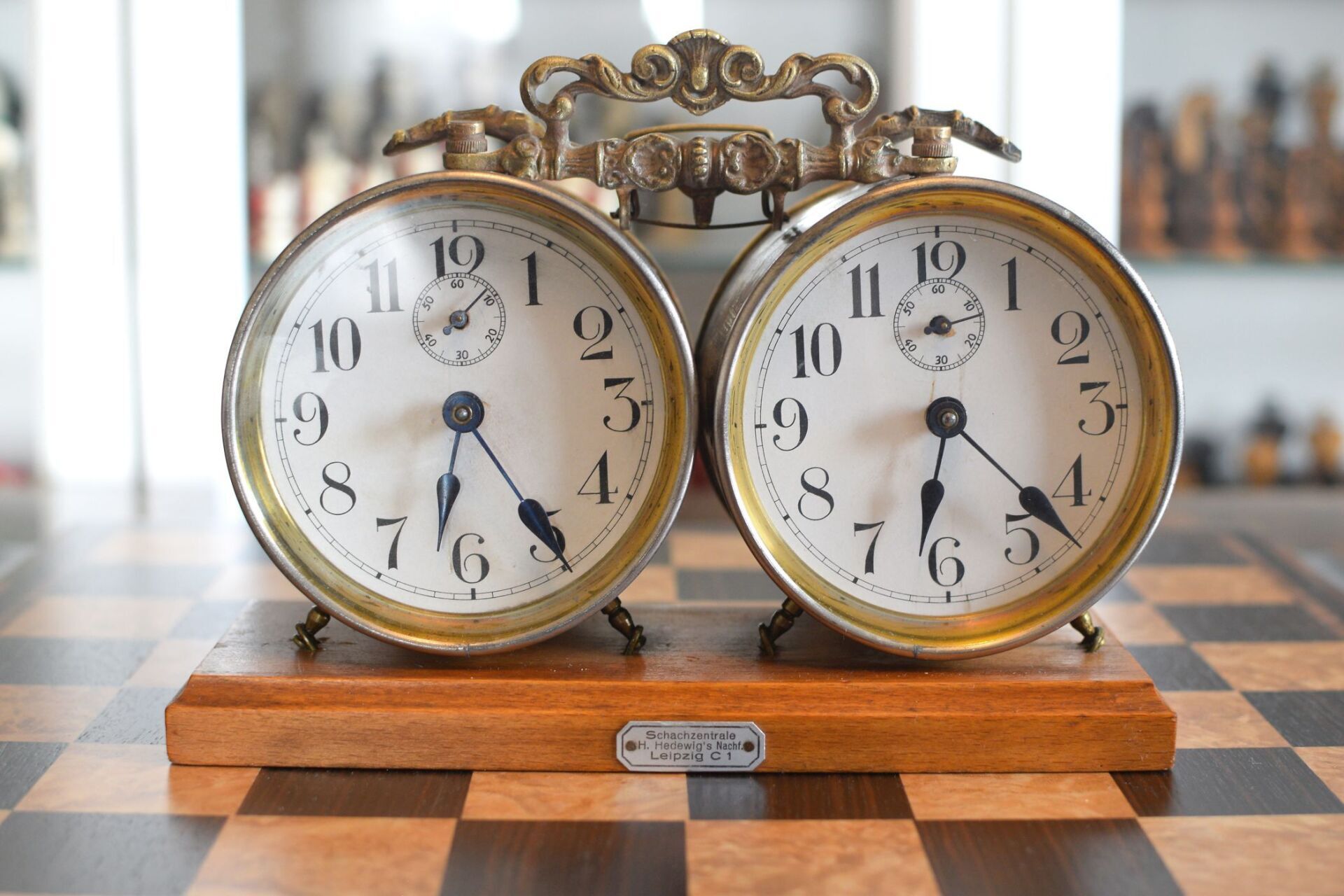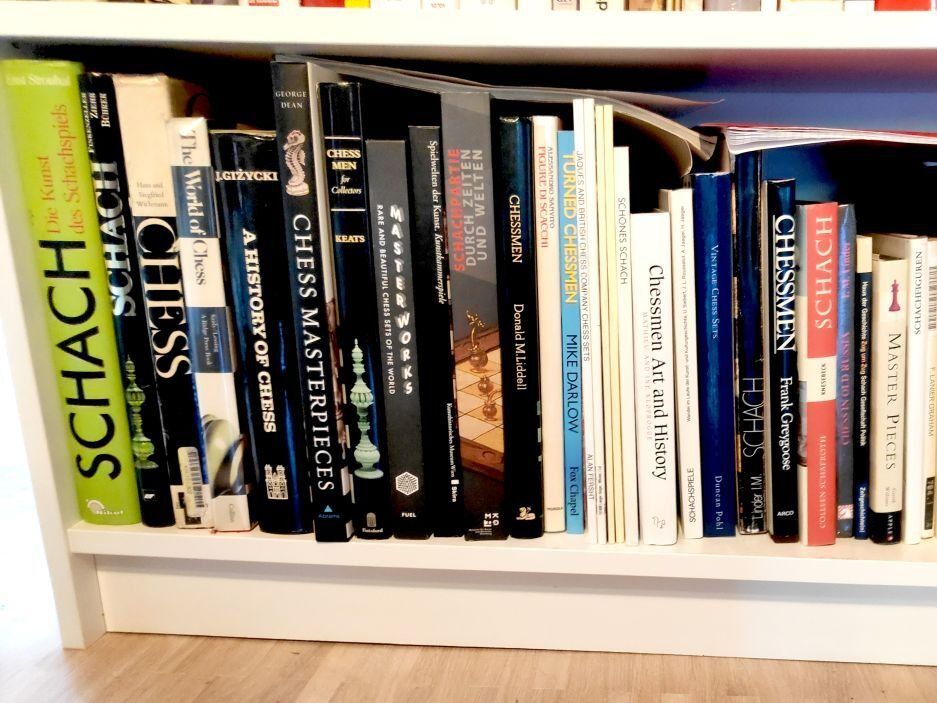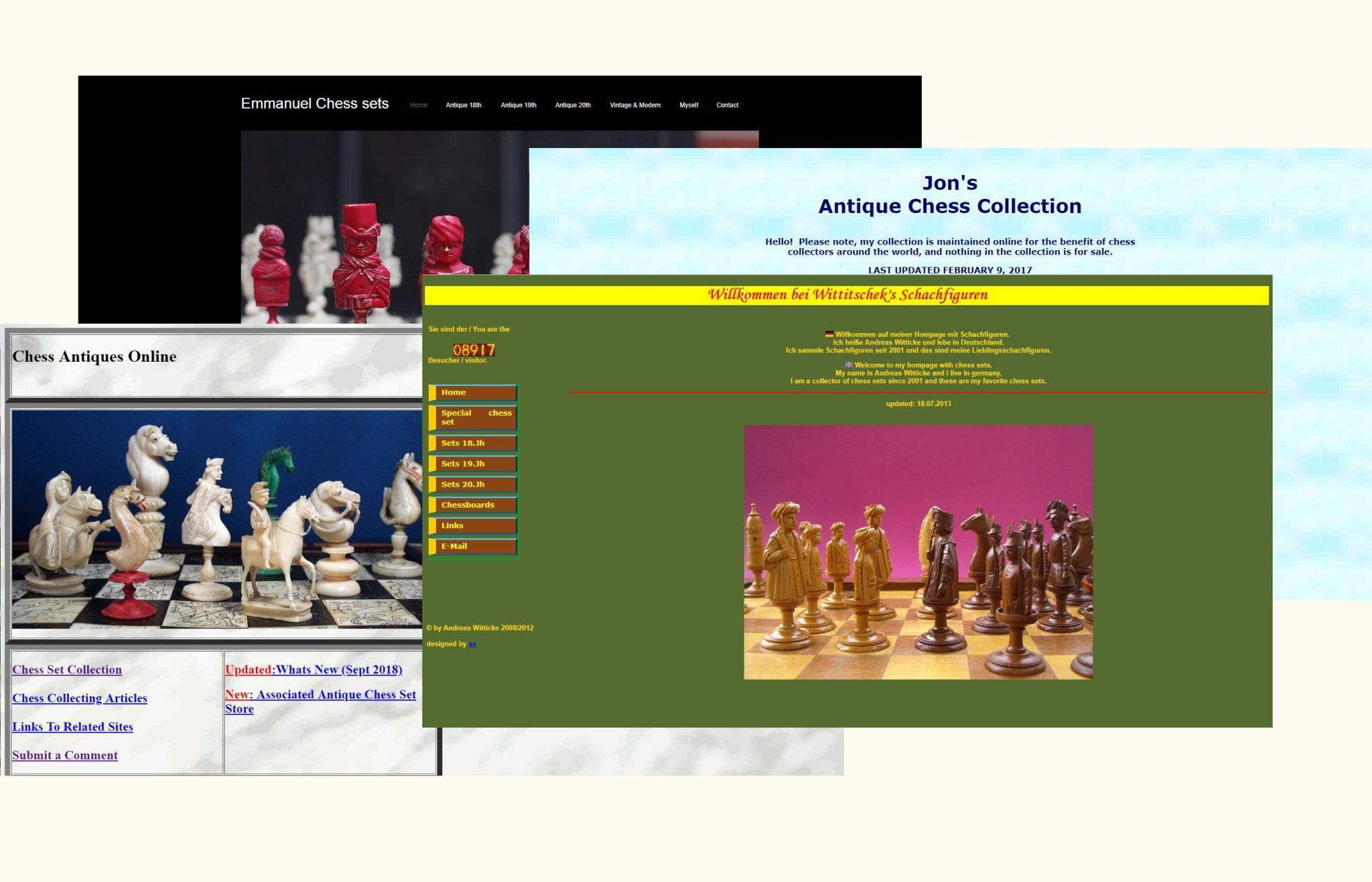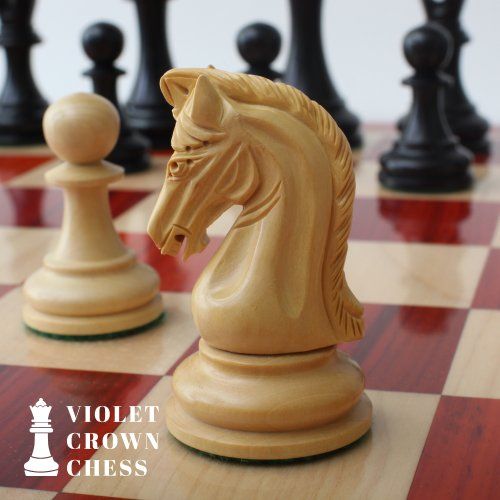Fichter Chess Clock, Germany, 1950-1976
Here is one of the finest chess clocks ever produced in my opinion. It is a Fichter clock, made in Villingen, a small town in the southwest of Germany, home to several of the most prestigious clock manufacturers in the world. After the second world war, Fritz Fichter worked in his father's clock factory Fichter & Hackenjos until 1948, before he opened his own watch factory in 1949 under the company name Uhrenfabrik Goldbühl Fritz Fichter KG ("Goldenbühl" is a district of Villingen, i.e. it is possible that this part of the company name can be traced back to this). In 1952, Fichter & Hackenjos discontinued watch production, while the business of Uhrenfabrik Goldbühl Fritz Fichter KG developed positively and became one of the largest suppliers, especially in the field of alarm clock production. At its peak, the company employed 800 people and had an annual turnover of 8 million German marks (which corresponds to a current value of about 12 million US$). Both, Fichter & Hackenjos as well as Fichter KG had various trademarks, which are listed on this website.
With the advent of quartz movements at the beginning of the seventies, numerous watch manufacturers began to struggle. The well-known Villingen company Kaiser-Uhren filed for bankruptcy in 1974. Fichter KG tried to stabilize its business through the then owner Sigrid Ginter and made an offer for the acquisition of the special movements for the production of the double bell alarm clock from the bankrupt's estate. This was seen as an opportunity to regain a foothold in the German mail-order business, especially with the large mail-order company Quelle. At that time the GDR sold alarm clocks and other watches - mainly manufactured by Uhrenmanufaktur Ruhla (UMF Ruhla), the manufacturer of the famous Ruhla Gardé chess clock - at dumping prices via the large department store groups in Germany. In 1974 the GDR (via UMF Ruhla) had sold 872,000 movements to the Federal Republic of Germany alone, an increase of 53% compared to 1973. However, the offer of Fichter KG was not taken into account by the receiver Prof. Dr. Hellmuth Fischer, but the entire tool package was sold to UMF Ruhla, because the GDR company had offered more money. As a result, Fichter KG also ceased operations in 1976 and filed for bankruptcy.
Chess clocks can therefore only have been produced at Fichter in the short period between 1950 and 1976. The clocks themselves are of an outstanding quality and belong to the best that has ever been produced in the field of compact chess clocks. In my opinion the watches are at least as good, maybe even better, than the well-known Looping and Solora models.
The model I purchased is in perfect mint condition including the original box. The two clockworks are encased in a wooden block which is slightly tilted. The clock is operated with two metal push buttons, which are the smoothest and at the same time most solid mechanism I have ever seen.
With the advent of quartz movements at the beginning of the seventies, numerous watch manufacturers began to struggle. The well-known Villingen company Kaiser-Uhren filed for bankruptcy in 1974. Fichter KG tried to stabilize its business through the then owner Sigrid Ginter and made an offer for the acquisition of the special movements for the production of the double bell alarm clock from the bankrupt's estate. This was seen as an opportunity to regain a foothold in the German mail-order business, especially with the large mail-order company Quelle. At that time the GDR sold alarm clocks and other watches - mainly manufactured by Uhrenmanufaktur Ruhla (UMF Ruhla), the manufacturer of the famous Ruhla Gardé chess clock - at dumping prices via the large department store groups in Germany. In 1974 the GDR (via UMF Ruhla) had sold 872,000 movements to the Federal Republic of Germany alone, an increase of 53% compared to 1973. However, the offer of Fichter KG was not taken into account by the receiver Prof. Dr. Hellmuth Fischer, but the entire tool package was sold to UMF Ruhla, because the GDR company had offered more money. As a result, Fichter KG also ceased operations in 1976 and filed for bankruptcy.
Chess clocks can therefore only have been produced at Fichter in the short period between 1950 and 1976. The clocks themselves are of an outstanding quality and belong to the best that has ever been produced in the field of compact chess clocks. In my opinion the watches are at least as good, maybe even better, than the well-known Looping and Solora models.
The model I purchased is in perfect mint condition including the original box. The two clockworks are encased in a wooden block which is slightly tilted. The clock is operated with two metal push buttons, which are the smoothest and at the same time most solid mechanism I have ever seen.
